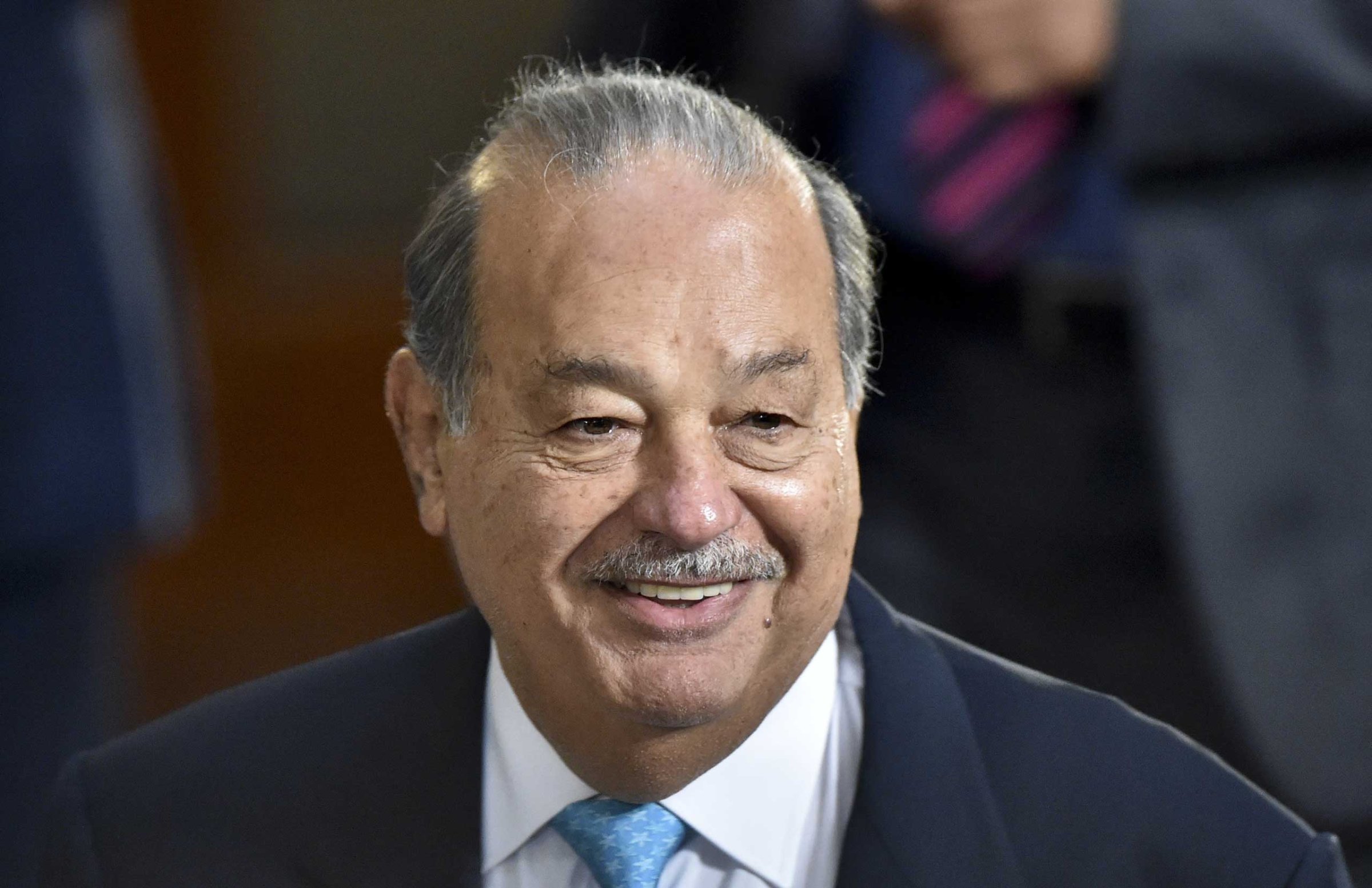
Carlos Slim, the richest man in Latin America and for several years, the world, has a surprising hero – the Mongol warlord Genghis Khan. Slim’s fascination with the medieval emperor even reflects in his business strategies. Genghis Khan would make tactical retreats, lulling his enemies into a false sense of security, before striking hard. The 75 year old telecoms tycoon Slim has been telling people he is retiring from business for the last 15 years, only to make a series of moves into new territory, most recently petroleum.
Slim’s admiration for the Great Khan is one of many intriguing details of the Mexican billionaire revealed in a new biography by investigative journalist Diego Enrique Osorno. In “Slim: The Political Biography of the Richest Mexican in the World,” it is also uncovered that the tycoon was bullied at his Mexico City school because he is the son of Lebanese parents, who had the original surname Salim. It is shown that his family had ties to the Lebanese Phalange, a right wing Christian group known for massacres of Palestinians. And it is documented how Slim’s older brother Julian was a member of a Mexican secret police force accused of torturing and disappearing leftist rebels.
Yet while digging relentlessly for any dirt that can be found, Osorno’s biography also paints the picture of a dignified and determined entrepreneur, a mathematical genius and dogged worker, who maintains a certain humility even as his wealth topped $77 billion. “It is not the story of a hero or a villain but of a human being with a mountain of contradictions,” Osorno tells TIME. “For some sectors of Mexican society (Slim) is an aspirational figure. It is a way that Mexico is triumphing, to have somebody with this level of wealth. But for another sector, he incarnates the enormous inequality of this country.”
Osorno began his probe all the way back in 2007, after spending years covering the struggles of Mexico’s poor and marginalized. Watching Slim’s fortune expand exponentially in the face of this was shocking, he says. “I was driven by a sense of injustice, by anger,” Osorno says. “How is it is possible that the same country that has all this poverty creates this character?” Slim kept on climbing to become the richest man on the entire planet from 2010 to 2013. He finally lost that title to Bill Gates, and Slim has seen his fortune reduced this year by the tumble of gold prices.
Despite Osorno’s outrage, his investigation led him to respect the entrepreneurial qualities of Slim and what he describes as his “permanent strategic vision.” Osorno spent four whole years fighting to get an interview with the billionaire, and Slim finally gave him three, telling his story over seven hours. “(Slim) said, ‘Don’t write too many lies about me,’ in a way that was between a threat and a joke,” Osorno says. “He said, ‘Why are you so interested in my admiration of Genghis Khan?’ And as he asked it, he explained some fascinating details about Genghis Khan.”
After graduating as an engineer, Slim made money as a stockbroker and private investor in everything from restaurants to construction companies to mines. But his fortune really took off in the 1990s, when he brought Mexico’s telephone monopoly from the government. Through aggressive maneuvers, including many court cases, Telmex dominated the Mexican phone market for years after privitization. Even today, it owns 70 percent of the nation’s fixed and mobile lines. Osorno says this lack of competition hurt the country, but that Slim did it by legal methods. “He knows how to read the system better than anybody else,” Osorno says.
Slim went on to buy telecoms companies across Latin America and beyond until his America Movil operated more than 300 million lines. He also continually buys into new ventures, including airlines, soccer teams, major U.S. retailers and the New York Times (he owns 16 percent). In April, Slim formed his own oil and gas company. Osorno says that the billionaire is now driven by the idea of winning more than actually making money. “He says he doesn’t care about money,” Osorno says. “He says ‘This is my work, this is what makes my life sense, what motivates me to get up. If they take this away from me, I would feel dead.’ ”
Despite growing to respect Slim’s entrepreneurial qualities, Osorno still sees his triumph as emblematic of an unfair system that keeps many Mexicans in poverty, driving crime and violence. This system itself needs to change, for the nation to advance, he says. “The success of a few,” Osorno writes, “should not be at the cost of the failure of a entire country.”
More Must-Reads from TIME
- Why Biden Dropped Out
- Ukraine’s Plan to Survive Trump
- The Rise of a New Kind of Parenting Guru
- The Chaos and Commotion of the RNC in Photos
- Why We All Have a Stake in Twisters’ Success
- 8 Eating Habits That Actually Improve Your Sleep
- Welcome to the Noah Lyles Olympics
- Get Our Paris Olympics Newsletter in Your Inbox
Contact us at letters@time.com